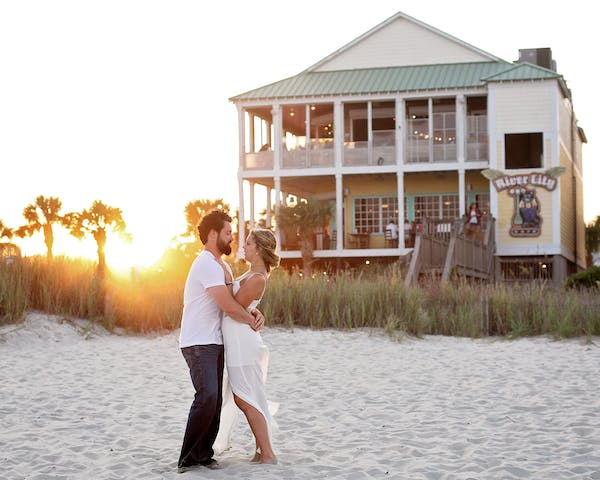When you’re buying a house on the beach, it can be all too easy to get distracted by the gorgeous views and forget to carefully inspect the house. Whether it’s your primary or secondary residence, a beach home can be a great investment, as long as you enter the deal with open eyes.
Many of the things you should consider when buying a beach home are the same as when you’re buying any other home: the neighborhood, the homeowners association (HOA), and the condition of the home itself should be top concerns.
However, when you’re buying a beach house, you have some additional things to worry about – for example, ocean tides could bring the waterline right to your doorstep, and ocean storms could subject your home to flooding. You’ll need to know the zoning laws in your neighborhood, especially if you plan to rent your beach home out.
And, of course, you’ll need to make sure that you’re financially secure enough to afford the extra costs and insurance your beach house will require. Let’s take a closer look at some of the things you should consider when buying a beach house.
The Neighborhood
Just as when you buy any house, it’s important to consider the neighborhood you’re buying into when you buy a beach house. If you have kids, you’ll probably want to buy in a neighborhood with young families so that your kids will have friends to play with.
Many beach neighborhoods have HOAs, and the fees can get higher as the neighborhood ages. And, of course, talking to the neighbors before you commit to a beach home purchase can give you insights into the community and the neighborhood that realtors might not know or be willing to divulge.
Ocean Tides and Weather
When it comes to buying a home on the coast, you’ll need to consider the average high tide levels and how the house fares in hurricanes and other ocean storms. Hire a land surveyor to note where the high tide line is and how high the tides get normally. Ask the neighbors how badly the neighborhood is affected by ocean storms.
With severe weather events becoming more common, you will almost certainly need to protect the home from hurricanes or make arrangements for someone to do so in your stead, if you can’t be at the home yourself.
Your Finances
Buying a beach house tends to be more expensive than buying a house inland. For one thing, beachfront property is among the most desirable and prices for beachfront homes are much higher even for homes that are one or two houses back from the beach.
Plus, you’ll have to consider HOA fees and property management fees of 8 to 12 percent if you want to rent the house out. You’ll need to buy special homeowners insurance. Beach homes also tend to need more repairs, thanks to weather events and corrosive salt winds. 
Changing Sea Levels
Global sea levels are rising, and that’s definitely something to consider if you’re thinking of buying a house on the water. Rising sea levels could easily put your dream home underwater. It might be best to consider buying a home a little back from the beach – once sea levels rise, you could have beachfront property after all.
Zoning Laws
Zoning laws control things like whether you’re allowed to rent your beach house out to vacationers or even long-term tenants. They can also control the kinds of structures that can be built in your neighborhood. Check the zoning laws in your neighborhood before you buy. That way you won’t be surprised by a high-rise going up next to your house, or an inability to rent the house out when you’re not using it.
The Condition of the House
It’s always important to get a home inspection when you’re buying a house, but when you’re looking at New Smyrna beach real estate, or really any beach real estate, you need to get the home inspected by an inspector that has experience looking at beachfront homes.
Beachfront properties are subjected to erosion and damage from the salty sea air, so they can have unique problems that other homes may not. A coastal home inspector can tell you whether the house has ever been flooded and if it floods regularly, for example.
Insurance Requirements
Regular homeowners insurance won’t protect you in the event of hurricanes, and flood insurance doesn’t cover hurricane damage, either.
You need a homeowners policy that covers wind-driven rain damage. This insurance can be expensive, depending on where you’re located and even what direction your home faces – west-facing homes are more prone to hurricane damage, for example.
A beach house can be a great location for family vacations or a solid rental investment opportunity, or both. But take care when you buy your beach home. Otherwise, you could end up saddled with expensive repairs and high costs of ownership.

